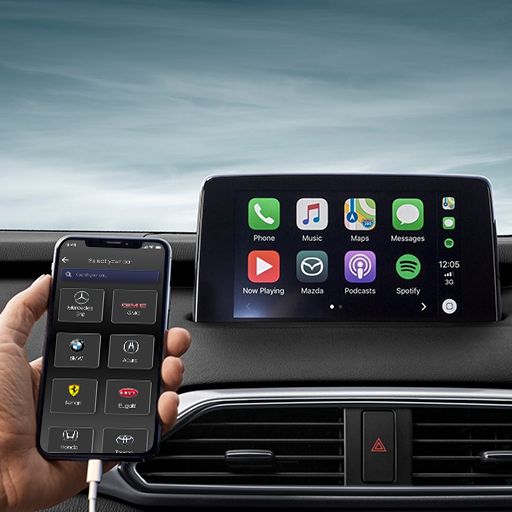Introduction:
Modern vehicles are no longer just transportation devices; they've become sophisticated technological hubs on wheels. One of the most significant advancements in recent years is the integration of car connectivity features, blurring the lines between our digital lives and our driving experience. These features offer a plethora of benefits, from enhanced safety and convenience to seamless entertainment and information access.

This blog post will delve into the world of car connectivity, exploring the various features available, their functionalities, and the impact they have on the modern driving experience. We'll discuss how these features are transforming the way we interact with our vehicles and the wider world around us.
The Rise of Connected Cars:
The concept of connected cars has gained immense traction in recent years, driven by the convergence of technology and automotive innovation. These vehicles utilize various communication technologies, including cellular networks, Wi-Fi, and Bluetooth, to connect with the internet and other devices. This connectivity enables a wide range of features that enhance safety, convenience, and entertainment.
Key Connectivity Features:
1. Infotainment Systems:
Modern infotainment systems are the heart of car connectivity. They typically feature touchscreens, voice control, and integration with smartphones. These systems allow drivers and passengers to access music streaming services, navigation apps, and even make phone calls hands-free.
2. Advanced Safety Features:
Connectivity plays a crucial role in enhancing vehicle safety. Features like automatic emergency braking, lane departure warning, and adaptive cruise control rely on sensors and communication systems to detect potential hazards and intervene when necessary.
3. Remote Access and Control:
Many connected cars offer remote access and control features through smartphone apps. This allows drivers to lock and unlock doors, start the engine, check fuel levels, and even locate their vehicle remotely.
4. Over-the-Air Updates:
Connectivity enables car manufacturers to deliver software updates wirelessly. This eliminates the need for physical visits to dealerships and ensures that vehicles are always running the latest software with the most up-to-date features and security patches.
The Future of Car Connectivity:
The future of car connectivity is bright, with advancements in artificial intelligence, autonomous driving, and 5G technology poised to revolutionize the driving experience. We can expect to see even more sophisticated features, including:
- Autonomous Driving: Connected cars will play a vital role in the development of self-driving vehicles, enabling communication between cars and infrastructure.
- Enhanced Navigation: Real-time traffic information, personalized route suggestions, and predictive maintenance alerts will become commonplace.
- Personalized Experiences: Vehicles will learn driver preferences and tailor settings, entertainment, and navigation to individual needs.
Conclusion:
Car connectivity features are transforming the way we drive, offering a blend of safety, convenience, and entertainment. As technology continues to evolve, we can expect even more innovative features to emerge, making our vehicles smarter, safer, and more enjoyable to drive.




